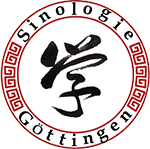
- This event has passed.
Lecture (Eugenio Menegon, Associate Professor of History, Boston University): Empire of Paper. Missionaries, Diplomats, and Early Sinologists as Social Carriers of Translingual Practices and Worldviews, through the Story of a Manuscript Vocabulary between Beijing and Rome, 1760s-1820s
7. July 2022, 18:00 - 20:00
July 07, 2022, 18:00 (GMT +2) in Amsterdam, Berlin, Rome, Stockholm, Vienna
On Campus: VG 3.103 (University of Göttingen, Verfügungsgebäude, Platz der Göttinger 7, 37073 Göttingen)
On Zoom: For registration, please use this zoom link.
Dictionaries compiled in the last phase of the manuscript age (late 16th to early 19th century) acted as metaphorical soldiers of the “empire of paper” that European observers in China – predecessors of the modern China watchers – enlisted to crack the secrets of the Chinese language and to convert the Chinese to Christianity. Through them, information on China, its language, and culture circulated in Europe, and assisted the birth of academic sinology. Such texts also reflect the role of missionaries, diplomats, and sinologists as “social carriers” of a hybrid cultural worldview developed between Europe and China, and their translingual practices. The story of a vocabulary preserved at the Vatican Library, the object of this study, illuminates the past of the Catholic mission in imperial Beijing during the eighteenth century, and in particular the operations of the Congregation for the Propagation of the Faith or de Propaganda Fide, the “ministry of missions” of the Holy See. It also shows how linguistic knowledge of Chinese was treasured and sought for by European diplomats, linguists, and missionaries alike, and how manuscript culture continued to have an important role in the cross-cultural circulation of knowledge about China well into the nineteenth century.
This lecture is part of the lecture series Conceptions of World Order and Their Social Carrier Groups.
Speaker:
Eugenio Menegon 梅歐金 (BA University of Venice Ca’ Foscari, Italy; MA & PhD, UC Berkeley) teaches Chinese history and world history at the Department of History at Boston University, and was Director of the Boston University Center for the Study of Asia in 2012-2015. His interests include Chinese-Western relations in late imperial times, Chinese religions and Christianity in China, Chinese science, the intellectual history of Republican China, the history of maritime Asia, and Chinese food history. He has been Research Fellow in Chinese Studies at the Katholieke Universiteit Leuven (Belgium), An Wang Post-Doctoral Fellow at Harvard University’s Fairbank Center for Chinese Studies, Boston University Humanities Center Junior and Senior Fellow, a Member of the School of Historical Studies at the Institute for Advanced Studies in Princeton, and Senior Fellow at the Institute for Advanced Jesuit Studies at Boston College.
He has published widely, including the book Ancestors, Virgins, and Friars: Christianity as a Local Religion in Late Imperial China (Harvard University Press, 2009; recipient of the AAS 2011 Joseph Levenson Book Prize) centers on the life of Catholic communities in Fujian province between 1630 and the present. He is currently a Berenson Fellow at the Harvard Center for Italian Renaissance Studies – Villa “I Tatti” (Florence).
Organizers:
Prof. Dr. Dominic Sachsenmaier, University of Göttingen
Benjamin Creutzfeldt, PhD, University of Göttingen
Worldmaking from a global perspective: A Dialogue with China
Department of East Asian Studies, University of Göttingen
Sponsor:
University of Göttingen


